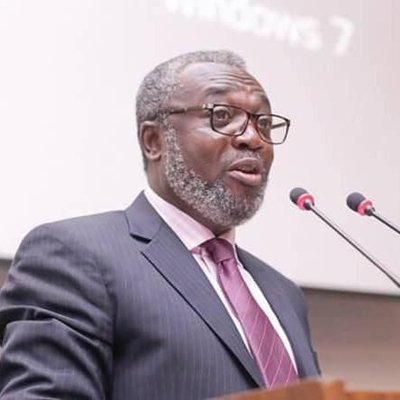Nsiah Asare: Dismissal of Health Workers Stalled the Implementation of Agenda 111 Hospitals

Dr. Anthony Nsiah Asare, the former Presidential Advisor on Health, has once again highlighted that the termination of appointments for nurses and health workers during the Mahama administration severely hindered the smooth operationalisation of the Agenda 111 hospitals, despite many of them already being completed. Dr. Nsiah Asare argued that the directive from the Chief of Staff, which affected the employment status of these health workers, played a pivotal role in delaying the commencement of operations at these newly built facilities.
Dr. Nsiah Asare’s comments came in response to President Mahama’s recent assertion that none of the Agenda 111 hospitals are yet operational. In an interview with Citi News, Dr. Nsiah Asare stressed that the health workers, including nurses, were fully prepared and ready to take on the responsibility of running the completed facilities. He explained that the recruitment process for health professionals had already begun, with 15,200 nurses being recruited as part of the effort to staff the hospitals. He also clarified that financial clearance for the recruits was issued in July, but the process of hiring public health service personnel takes time and is not a rapid event.
Dr. Nsiah Asare emphasized that the sudden revocation of appointments or the termination of health workers’ contracts—especially those who had already started their duties or whose names had yet to be added to the payroll—left the new hospitals without the necessary staff. He pointed out that such decisions had a direct negative impact on the functionality of the health system, particularly in the case of the Agenda 111 hospitals, which were completed but remained inactive due to the absence of personnel to manage them.
In a similar vein, Alexander Akwasi Acquah, the former Deputy Minister of Health and the current Member of Parliament for Akim-Oda, placed further blame on the dismissal of health workers for the delay in operationalising some of the completed Agenda 111 hospitals. Acquah revealed that although three key hospitals have been fully constructed and equipped, they have not yet opened their doors due to the severe shortage of medical staff. He indicated that these facilities, located at Trede in Atwima Kwanwoma, Kokoben in Oforikrom, and Bokro in Ahanta West, were ready for use, but were unable to operate because there were no trained professionals to staff them.
Acquah further explained that the practitioners who had been recruited under the Akufo-Addo administration were the very ones who had been dismissed or whose appointments had been revoked. He pointed out that this created a serious staffing issue for the new hospitals, as the Ghana Health Service (GHS) was unable to assign personnel to the facilities due to the terminations. Acquah underscored the importance of maintaining a stable and well-resourced workforce to ensure that these newly built hospitals could be effectively managed and serve their intended purpose of improving healthcare access for local communities.
The delays in operationalising the Agenda 111 hospitals have raised concerns among the public, especially given the increasing pressure on the healthcare system in Ghana. These hospitals were intended to provide critical healthcare services to underserved areas, addressing regional disparities in health access and improving the overall capacity of the healthcare system. However, the lack of medical staff has rendered many of these facilities inactive, undermining the promise of better healthcare delivery for the population.
Both Dr. Nsiah Asare and Acquah are united in their stance that the termination of health workers’ appointments has been a key obstacle in ensuring the successful roll-out of these hospitals. Their comments suggest that the failure to address staffing shortages is a significant factor that continues to stall the full implementation of the Agenda 111 project. They argue that resolving this issue—whether through reinstating terminated workers or recruiting new staff—is critical to ensuring that the hospitals can begin operating and serving the public.
In conclusion, the Agenda 111 initiative, despite its potential to transform healthcare in Ghana, has been significantly delayed due to staffing issues that stem from the dismissal of workers. As both Dr. Nsiah Asare and Acquah have pointed out, these delays undermine the promise of improved healthcare services for many Ghanaians and highlight the urgent need for effective personnel management to ensure the success of the project.






